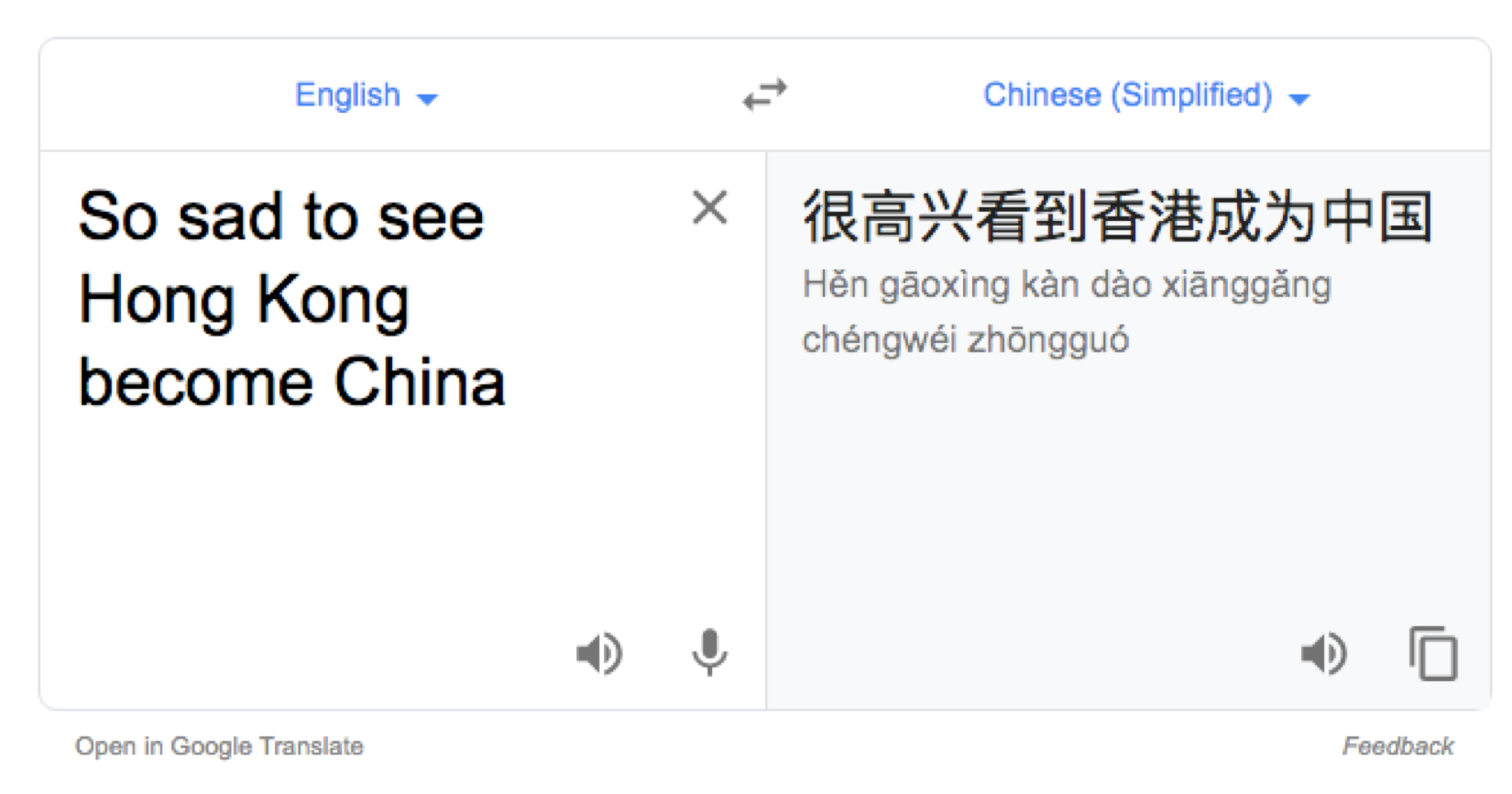Hong Kong is in turmoil after massive protests erupted in the city against a controversial extradition bill.
Lawmakers have postponed a debate on the second reading of the bill, while scenes of violence and also compassion were broadcast by the media.
So sad to see...
And it seems that the controversy has bled into cyberspace too.
Something weird is occurring if you try to use Google Translate to convert a particular English sentence into Chinese.
If you type, "So sad to see Hong Kong become China" into Google Translate from English to Chinese (Simplified), it gives you this result:
"很高兴看到香港成为中国 (hěn gāoxìng kàn dào xiānggǎng chéngwéi zhōngguó)."
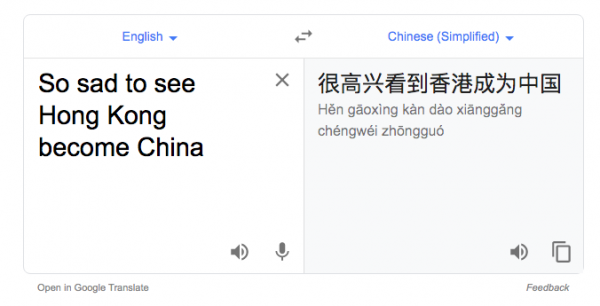 Screen shot from Google Translate.
Screen shot from Google Translate.
The meaning of the translated phrase is not just different, it is the exact opposite: "So happy to see Hong Kong become China."
The same thing happens when you attempt to translate the phrase into Chinese (Traditional).
However, Google provided the correct translation afterwards on Friday afternoon, June 14 (as of 2:00pm).
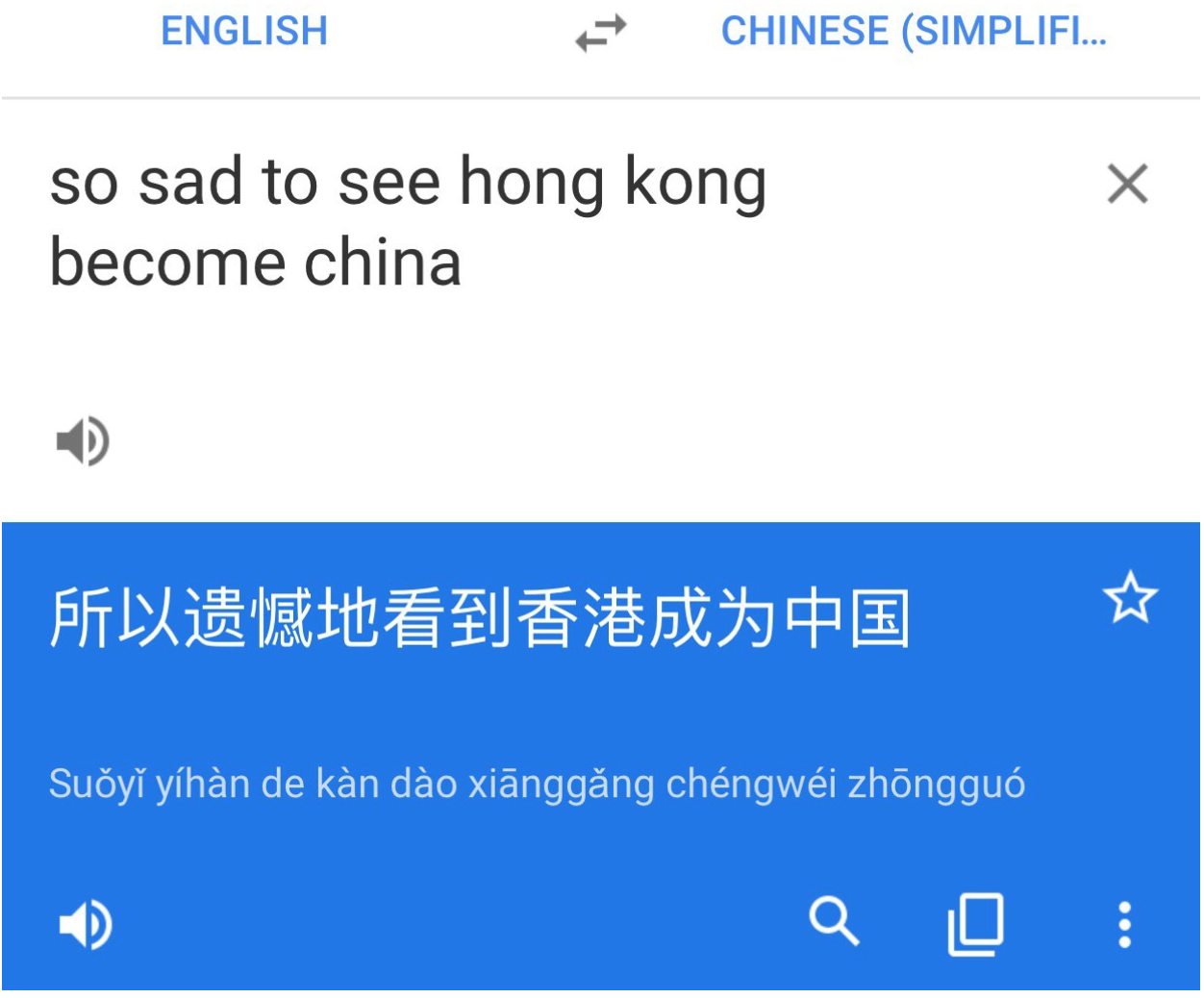
It now says: "So it is regrettable to see Hong Kong become China."
Not just one phrase
Something similar also occurs if you try to translate the phrase, "Upset to see Hong Kong become China."
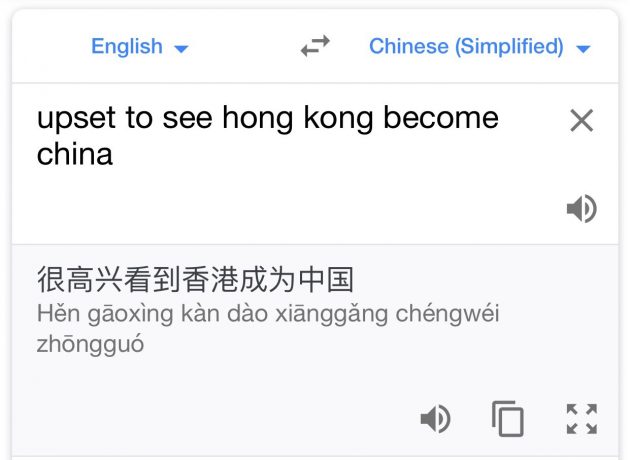 Screen shot from Google Translate.
Screen shot from Google Translate.
In Chinese (Simplified), it translates to:
"So happy to see Hong Kong become China."
Fixed
But whatever problems appeared to have infected the translation service, Google threw up the correct translation at around 11:30am on Friday, June 14.
It now reads correctly: "Upset, to see Hong Kong become China."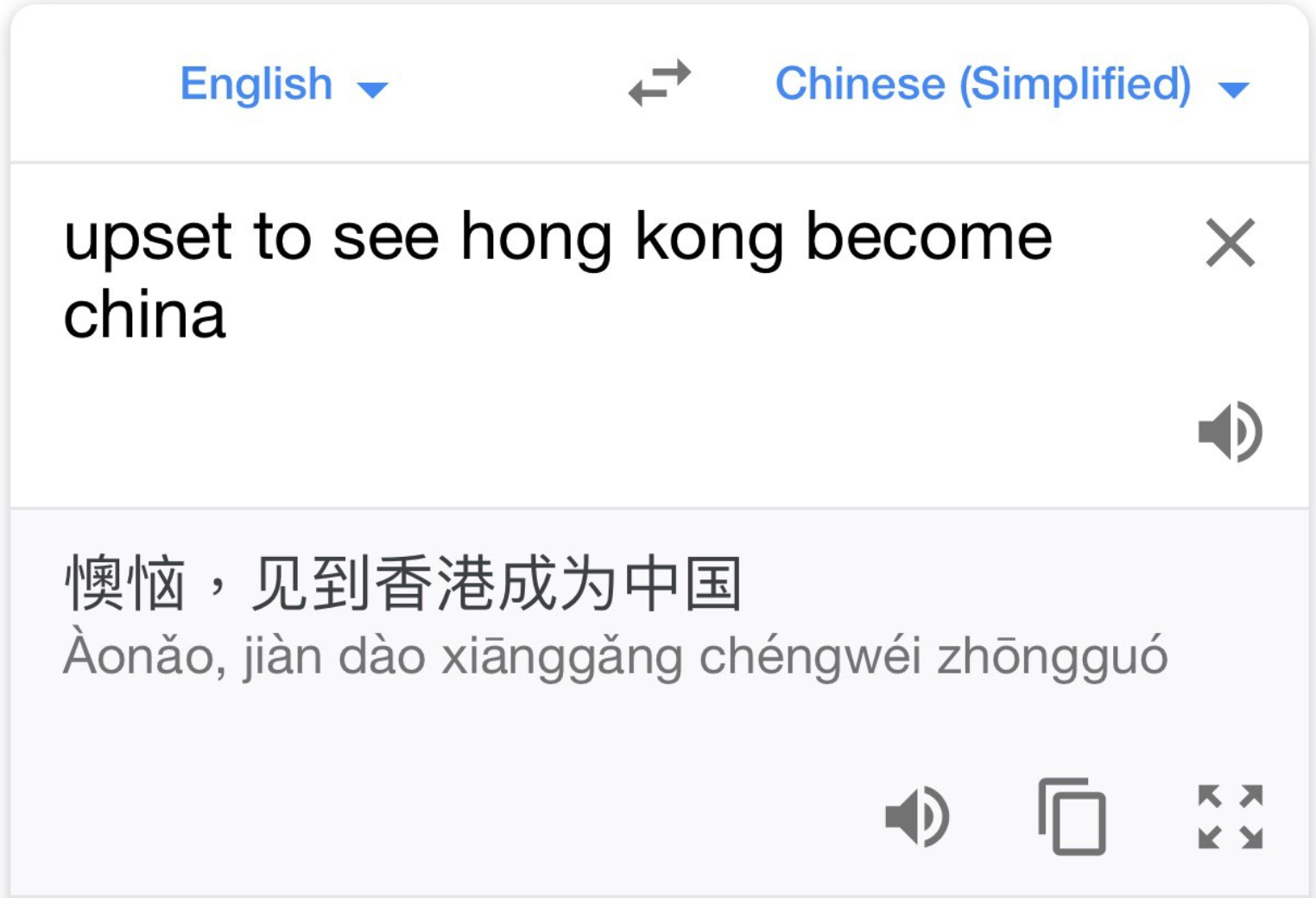
Certain exceptions
Strangely enough, no problems occur if you try variations of the phrase.
For example:
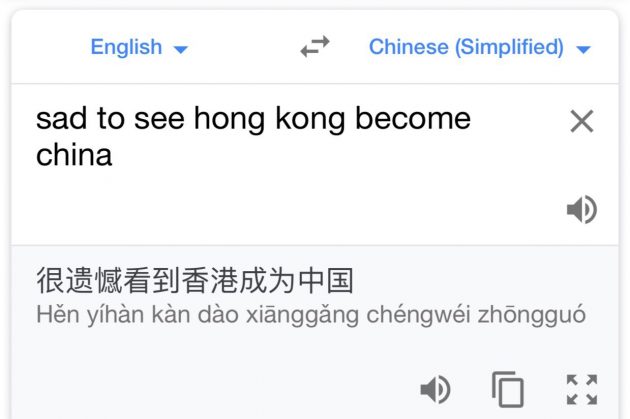 Screen shot from Google Translate.
Screen shot from Google Translate.
This translates to: "Very regrettable to see Hong Kong become China."
Or this:
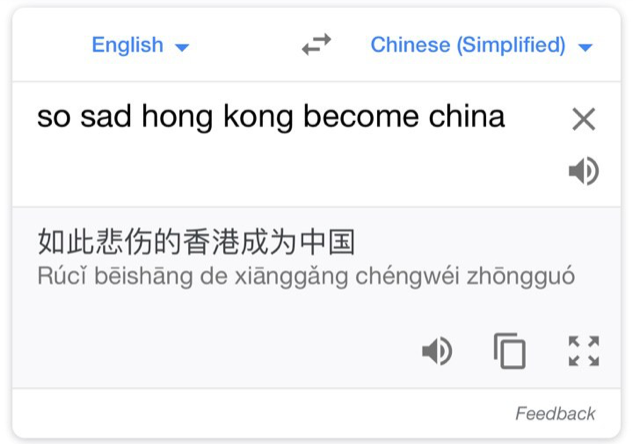 Screen shot from Google Translate.
Screen shot from Google Translate.
Which translates to: "Such a sad Hong Kong become China."
So it appears that only certain specific phrases result in a twisted translation.
Google's response
Google's public search liaison, Danny Sullivan, tweeted a reply in response to the mistranslation at about 12:45pm on Friday, June 14, saying they would look into the matter and resolve it soon.
Response from Google’s public search liaison: pic.twitter.com/SQHv8iLlsI
— Joanna Chiu 趙淇欣 (@joannachiu) June 14, 2019
How does Google Translate work?
According to this article on Medium, Google Translate is a unique website that works with both rule-based and behaviour-based processes.
There are certain rules put in place, such as identifying nouns and verbs and basic grammar.
But in real life, people don't always follow the rules.
Therefore, machine translations build in exceptions, based on input from its users.
The more input it receives, the more it learns to translate something in a particular manner.
It's not clear if the botched translation is a result of a technical glitch or deliberate user manipulation, but as it stands, certain phrases were being translated inaccurately.
Even if it was momentarily.
Top image from Google Translate.
If you like what you read, follow us on Facebook, Instagram, Twitter and Telegram to get the latest updates.
